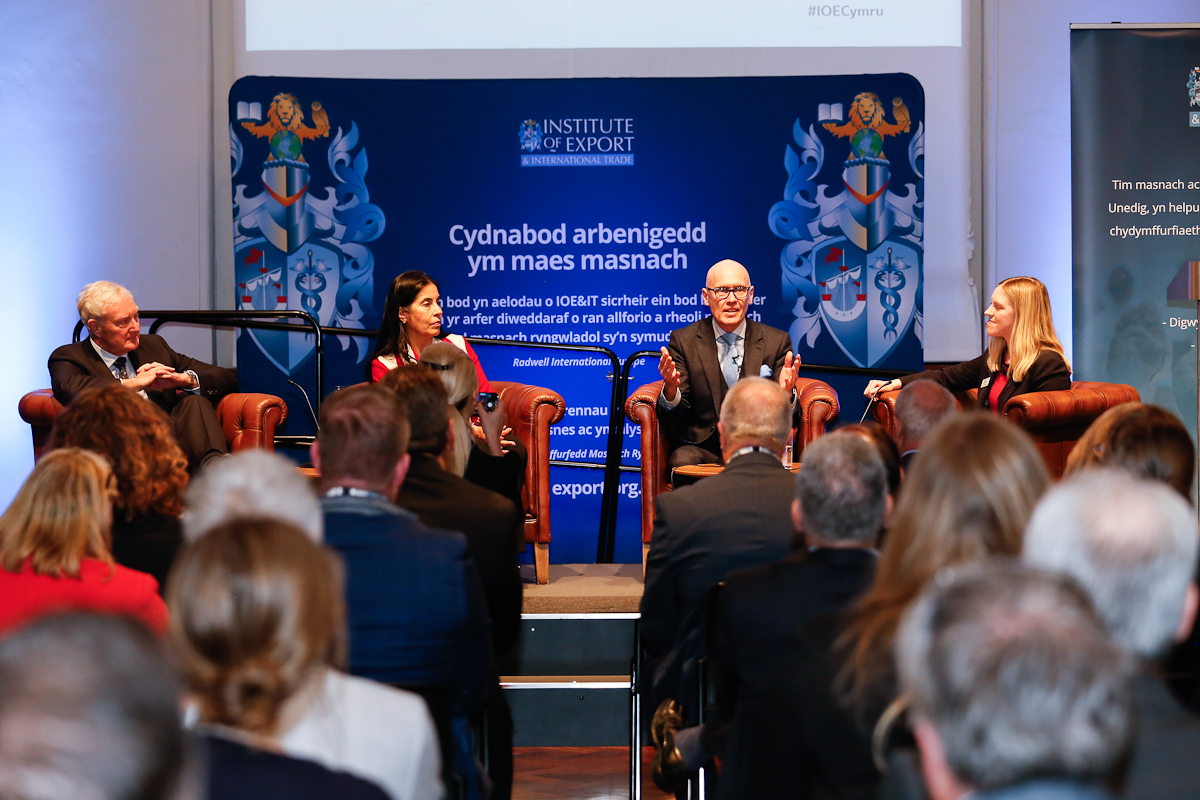
[Pictured: David TC Davies, secretary of state for Wales]
The secretary of state for Wales, David TC Davies, has welcomed the launch of the Institute of Export & International Trade’s (IOE&IT) new Welsh arm, saying the government is in “complete alignment” with the IOE&IT about the need to raise awareness about the benefits of exporting.
Representatives from government and industry attended the launch event for IOE&IT Cymru at the Senedd on Thursday evening (2 February).
Ramping up support
In his keynote address, Davies acknowledged the “difficult economic headwinds” currently faced by Welsh businesses but said that the government is determined to make it “smoother” for firms to trade internationally.
He said he was delighted that Welsh exports had recently exceeded pre-pandemic levels, rising by 36% to £19.4bn in the 12 months leading up to September 2022.
He said that the government was “ramping up support for exporters like never before” and that the UK government and its EU counterparts were taking a “more pragmatic approach” to post-Brexit negotiations, including talks over the implementation of the Northern Ireland Protocol.
He also highlighted the opportunities that could result from a trade deal with India and UK accession to the Comprehensive and Progressive Agreement for Trans-Pacific Partnership (CPTPP), both of which the government is currently negotiating.
Good timing
Davies welcomed the launch of IOE&IT Cymru, saying there “could not be a better time for the IOE&IT to be formally launching a presence in Wales”.
This sentiment was echoed by the Welsh government’s minister for the economy, Vaughan Gething, who said that the IOE&IT was a key part of the “export ecosystem” in the country.
Joel James, the Member of the Senedd for the region of South Wales Central, said that there were “loads of fantastic companies in Wales” that are “crying out to be exporting around the world”.
Skills are key
The event was hosted by the IOE&IT’s Wales lead, Paul Brooks, and its public affairs adviser, Grace Thompson.
On a panel chaired by Thompson, IOE&IT director general Marco Forgione said the organisation is determined to “champion Welsh exports to the world” and that addressing the skills gap in the country was a priority.
Forgione’s fellow panellists agreed, including the IOE&IT’s academic chair Sangeeta Khorana, who highlighted the need for industry to collaborate with academia, and IOE&IT chairman Terry Scuoler CBE, who raised the importance of apprenticeships.
Scuoler also spoke about the potential for the digitalisation of trade documentation to make the process of exporting and importing smoother.

[Pictured from left to right: Terry Scuoler CBE, IOE&IT chairman; professor Sangeeta Khorana MIEx, chair of IOE&IT academic board; Marco Forgione, IOE&IT director general; Grace Thompson, IOE&IT public affairs adviser]
Local support
“Exports are thriving here in Wales and it’s fantastic to see local support,” said Sarah Grain, a member of the IOE&IT, who works for Eriez Magnetics Europe as a business manager.
“It would be great to see a local facility where people can get together to mentor and support one another, spreading the message to other businesses and to young people in Wales too. There are huge opportunities to be had, particularly through the educational programmes presented tonight. I was very excited to hear about the potential for apprenticeships.”
Brand Wales
“I think brand Wales has a huge opportunity to grow internationally,” said Joelle Drummond, the co-founder of Drop Bear Beer Co, a non-alcoholic beer brewery in Wales.
“Organisations like the IOE&IT can come in and provide smaller businesses with the resources that they may need, as a lot of businesses have very small teams and cannot recruit export professionals in-house.”



